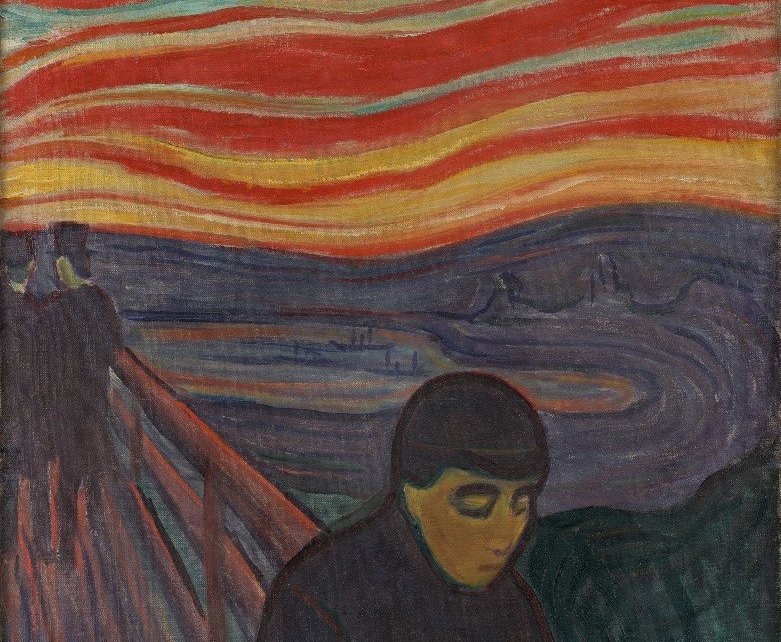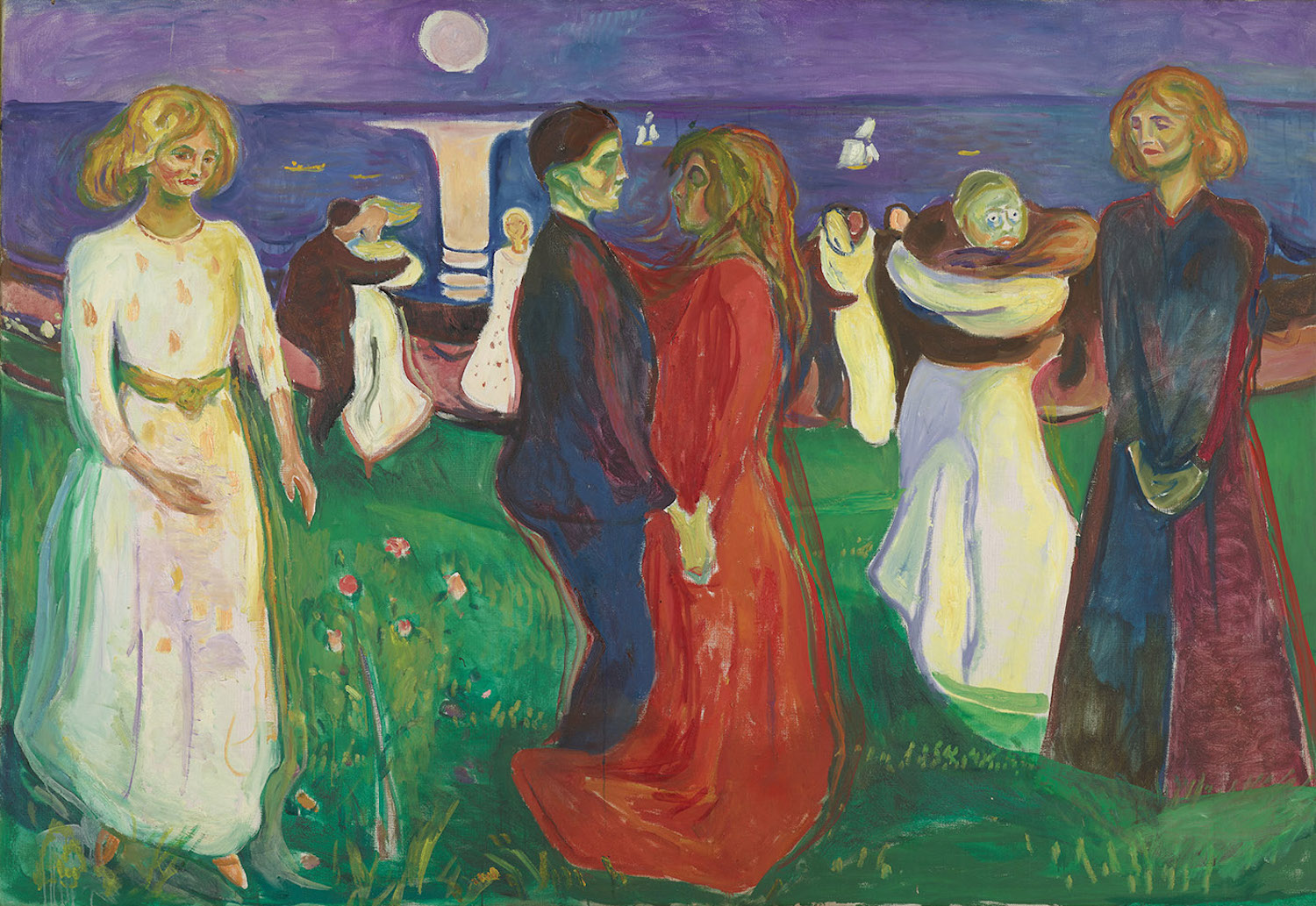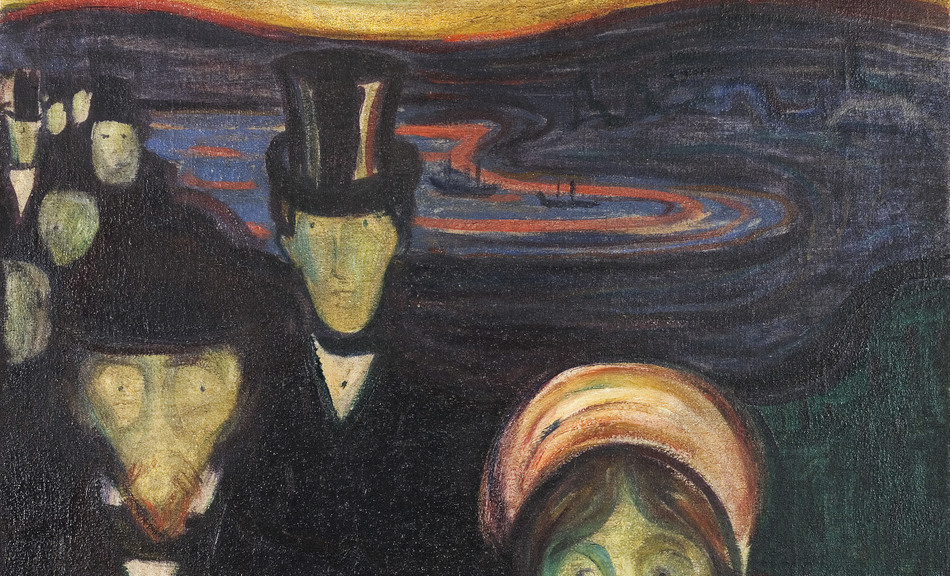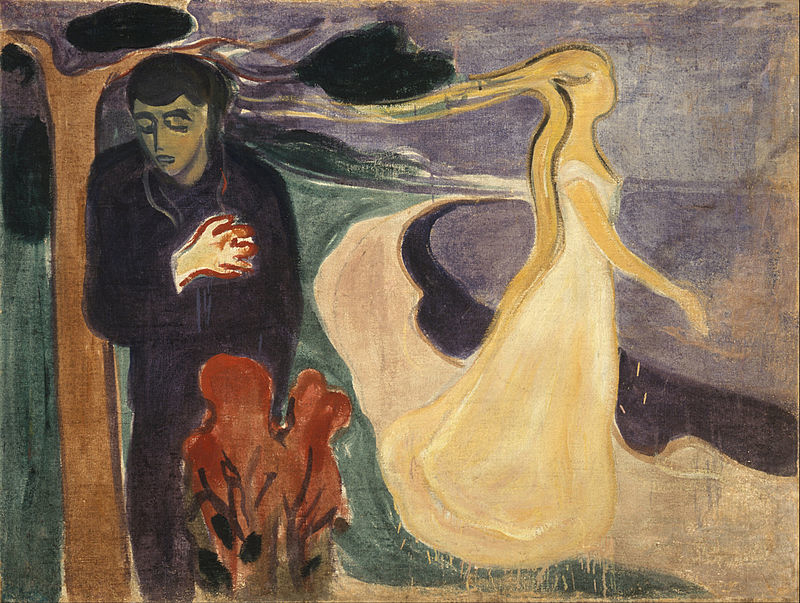
Niels Lyhne
Jens Peter Jacobsen
Photo credits: Pinterest / Edvard Munch - Despair
20th May 2020
"Niels Lynhe" is an 1880 novel written by the Danish author Jens Peter Jacobsen. A little known classic that I first discovered 5 years ago when I was reading Rainer Maria Rilke’s “Letters to a Young Poet”.
Rilke wrote the following in his 3rd letter to 20-year-old Franz Kapus, dated 23 April 1903:
“Now Niels Lyhne will reveal itself to you, a book full of splendours and depths; the more often one reads it, it seems to contain everything, from life’s faintest scent to the full, grand savour of its heaviest fruits… You will experience the immense pleasure of reading this book for the first time, and will pass through its innumerable surprises as if in a new dream”.
I read these letters as if Rilke had written them to me, so of course, that meant I had to get myself a copy of "Niels Lyhne". Since then I have read this book 4 times, and have discovered a wealth of experiences from a world not too distant from my own. And of course, I expect to read it many more times again in the years to come.

Photo credits: Artistsnetwork / Edvard Munch - The Dance of Life
"Niels Lynhe" is a profound coming of age story about the protagonist's (Niels Lyhne) individual struggle, faith, artistic expression and disillusionment.
From a young age, Niels Lynhe is raised by his mother’s poetic tendencies and spiritual imagination. This influence combined with Niel's self-relfectiveness helps to develop his natural gift of creativity flourishing from the very beginning of his childhood to his adolescence and adulthood. However, he will repeatedly come to learn that this unique quality will distiguish him from others, continually bringing him happiness and suffering.
As he matures, he chooses to become a poet, aligning with his desire to express his own sense of artistic depth. He crosses paths with various women at different stages of his life, each he loves with great passion, but all warn him about the dangers of his idealism and the futility of being an individual fighting the crowd. Ignoring their warnings, he experiences intense heartbreak from those he loves, condemnation from society and God’s silence. We learn that Niels' profound character often leaves him unintentionally isolated.
"Niels could not hide from himself that the friendship was very one-sided, not because there was any lack of true friendliness of Erik’s part, or because he had no faith in Niels. On the contrary, no one had more regard for Niels than Erik; ... but at the same time, he also regarded Niels’s work and what attracted his thoughts as completely removed from the horizon that he could reach with his own eyes...
This was rather hard for Neils, because even though Erik’s ideals were not his own, and what Erik expressed in his art did not appeal to him, he could nevertheless sustain a broader, more encompassing empathy and thus faithfully follow his friend’s development, rejoice with him when he made progress, and help him regain hope when he stood still.
In this way the friendship was one-sided, and it was not so strange that during this time when any new things were happening to Niels and the need for communication and sensitive understanding was great, that precisely at this time Niels should become aware of the inadequacy of this friendship..."
The world has no place for the passionate individual, others will often respond to him with indifference, misunderstanding or at worse ridicule. This, Niels finds out the hard way, making it more difficult to hold onto his idealistic expectations against reality. Unable to reconcile the conflict between passionate desire and real life, he finds himself disillusioned and alone, unable to find true solace in his Godless self-dependence nor with the Christian faith of his childhood.
The world continually tramples over Niels, yet with stubborn silence he continues to hold the banner of his deep convictions, alone, until “he finally died the death – the difficult death”.

Photo credits: TotallyHISTORY / Edvard Munch - Anxiety
It is truly admirable how Jacobsen is able to poetically express the existential condition of the solitary individual. Having an understanding of the human soul is difficult, but to express it with profundity and passion is infinitely more so. This, he seems to have written this with artistic clarity but also much heaviness.
Jacobsen critiques both atheism and faith, individual convictions and societal expectations, idealism and realism at the same time with romantic and naturalistic elements. The whole novel beautifully expresses the solitary individual's bitter realisation of life’s futility . The kind of futility that leaves the individual helplessly broken by the world.
Finally, I want to end this with one of my favourite excerpts from the novel:
"... it is so bitterly discouraging to see that what you are convinced, from the innermost silence of your soul, is true and right, to see this truth ridiculed and struck in the face by even the lowliest believer in the victorious army, to hear it slandered with obscene names, and then not be able to do anything, nothing but love it even more faithfully, kneel before it in your heart with even deeper reverence ... to have all your words distorted, besmirched, twisted out of joint, twined into cunning snares, thrown at your feet, and then before you have even gathered them up out of the dirt and untangled them from one another, suddenly to discover that the whole world is deaf. And then to start all over again from another point, with the same results, over and over. And then perhaps the most painful of all, to see yourself misunderstood and scorned by noble men and women, whom you, in spite of your different beliefs, regard with admiration and respect..."

Photo credits: PAINTRU / Edvard Munch - Separation